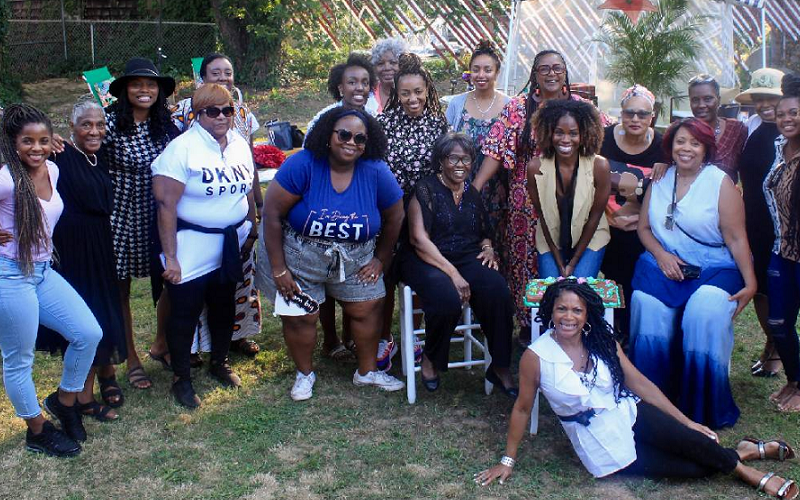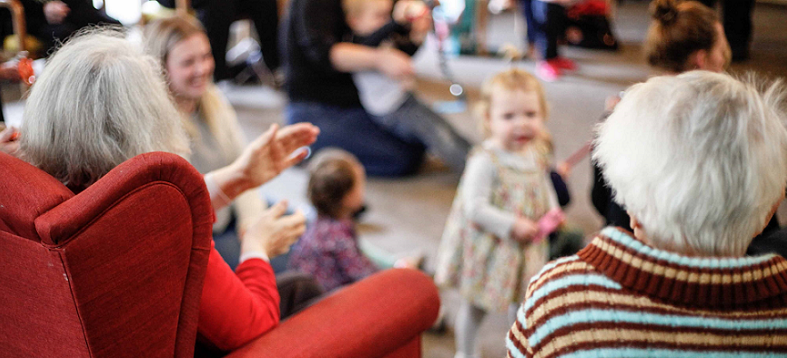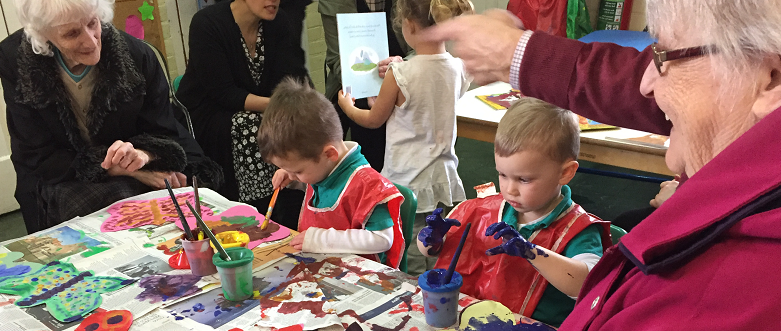
Intergenerational gatherings can be a wonderful opportunity to bring people of different ages and backgrounds together, to share experiences, learn from one another, and build connections. But hosting such gatherings can be challenging, especially when it comes to planning activities and creating an inclusive atmosphere that accommodates people of different ages and abilities. Here we explore the art of hosting intergenerational gatherings and share tips and ideas for making them a success.
Why Intergenerational Gatherings are Important
Intergenerational gatherings are important for several reasons. First and foremost, they promote understanding and empathy across generations, helping people of different ages to learn from one another and build connections. These gatherings can also foster a sense of community and belonging, bringing together people who might not otherwise have the opportunity to interact.
Intergenerational gatherings provide opportunities for older adults to share their wisdom and experiences with younger generations, while also allowing younger people to offer fresh perspectives and new ideas. Such gatherings can also help combat ageism and stereotypes by breaking down barriers and highlighting the diversity of experiences and perspectives across generations.
Intergenerational gatherings can be a source of fun and joy, offering a chance to share activities, stories, and traditions with others in a way that celebrates the richness of life across all ages.
Tips for Hosting Intergenerational Gatherings
Hosting intergenerational gatherings can be a rewarding experience, but it also requires careful planning and attention to detail. Here are some tips to keep in mind when hosting intergenerational gatherings:
- Start with a shared interest: One of the best ways to bring people of different ages together is to focus on a shared interest or activity. Consider planning a craft project, a game, or a cooking activity that everyone can participate in and enjoy.
- Set the tone: Create an atmosphere that is welcoming and inclusive for people of all ages. Consider using icebreakers or other activities to help people get to know one another and feel comfortable.
- Plan for different ages and abilities: When planning activities, be sure to consider the needs and abilities of people of different ages. Consider offering a variety of activities to appeal to different age groups and physical abilities.
- Be flexible: Be prepared to adapt your plans as needed to accommodate the needs and interests of the group. Consider soliciting feedback from participants and making changes as needed.
- Make it fun: Intergenerational gatherings should be enjoyable and engaging for everyone involved. Consider incorporating music, games, or other elements that will keep people of all ages entertained and having fun.

Ideas for Intergenerational Gatherings
Hosting intergenerational gatherings can be a rewarding experience, but it also requires careful planning and attention to detail. There are several factors to keep in mind when hosting intergenerational gatherings. By following these tips, you can create a memorable and engaging intergenerational gathering that promotes understanding and connection across generations. Remember to keep an open mind and a positive attitude, and be prepared to learn from and enjoy the company of people of all ages.
Start with a Shared Interest
Starting with a shared interest is a great way to create a sense of common ground and connection between people of different ages. When planning intergenerational gatherings, it can be helpful to think about activities or topics that might appeal to a wide range of ages and backgrounds.
This might include hobbies or interests such as cooking, art, music, or sports. By focusing on a shared interest, hosts can create a sense of excitement and anticipation around the gathering, and help to ensure that everyone feels included and engaged in the experience. A shared interest can serve as a springboard for learning and discovery, as participants can share their knowledge and expertise with one another and learn from the perspectives and experiences of people of different ages.
Set the Tone
Setting the tone is an important aspect of hosting successful intergenerational gatherings. The goal is to create an atmosphere that is welcoming, inclusive, and encourages everyone to feel comfortable and engaged. To set the tone, hosts might consider using icebreakers or other activities to help participants get to know one another and feel more at ease.
It can also be helpful to create a physical space that is comfortable and accessible to people of different ages and abilities. When planning activities, hosts should consider the needs and interests of participants of all ages, and strive to create a balance that accommodates different preferences and abilities.
Hosts might consider incorporating cultural or generational traditions into the gathering to help everyone feel valued and included. The goal of setting the tone is to create an atmosphere that is positive, engaging, and conducive to learning and connection across generations. By paying attention to the details and making an effort to create a welcoming environment, hosts can set the stage for a successful and memorable intergenerational gathering.

Plan for Different Ages and Abilities
Planning for different ages and abilities is an important aspect of hosting successful intergenerational gatherings. When planning activities, take into account the physical, cognitive, and emotional needs of participants of all ages.
This might involve selecting activities that are adaptable to different skill levels, offering modifications or adaptations to make activities more accessible, or ensuring that there are options for people with different physical abilities. Hosts might also consider grouping participants according to age or ability, or encouraging participants to work in pairs or small groups to support one another.
Hosts should also be mindful of cultural or generational differences that might impact how participants engage with one another. By planning for different ages and abilities, hosts can create an environment that is welcoming and inclusive to all participants, and that promotes connection and learning across generations.

Be Flexible
Flexibility is an important trait to have when hosting intergenerational gatherings. As with any event, unforeseen circumstances can arise, and hosts should be prepared to adapt their plans as needed to accommodate the needs and interests of the group.
This might involve changing the schedule, adapting activities to better suit the needs of participants, or incorporating new ideas or suggestions from participants. Hosts should also be prepared to handle any conflicts or challenges that arise, and should be ready to offer support or guidance to participants who may need it.
Hosts should also be open to feedback and suggestions from participants after the gathering is over. This can help hosts to refine their approach for future events, and can help to ensure that the needs and interests of participants are met in the future.
Make It Fun
Making it fun is a critical component of hosting successful intergenerational gatherings. The key is to create an environment that is engaging, lively, and interactive, and that encourages participants to let loose and have fun. This might involve incorporating games, puzzles, music, or other fun activities that everyone can participate in and enjoy.
Hosts might also consider offering incentives or rewards for participation, such as prizes or tokens of appreciation. Another approach is to incorporate humor and lightheartedness into the gathering, such as through funny stories or jokes that everyone can appreciate.
The goal is to create an environment that promotes connection and enjoyment across generations, and that helps to break down barriers and stereotypes that can sometimes emerge between different age groups. By making it fun, hosts can create a gathering that participants will look forward to attending, and that will leave them with positive memories and a sense of connection to people of all ages.
